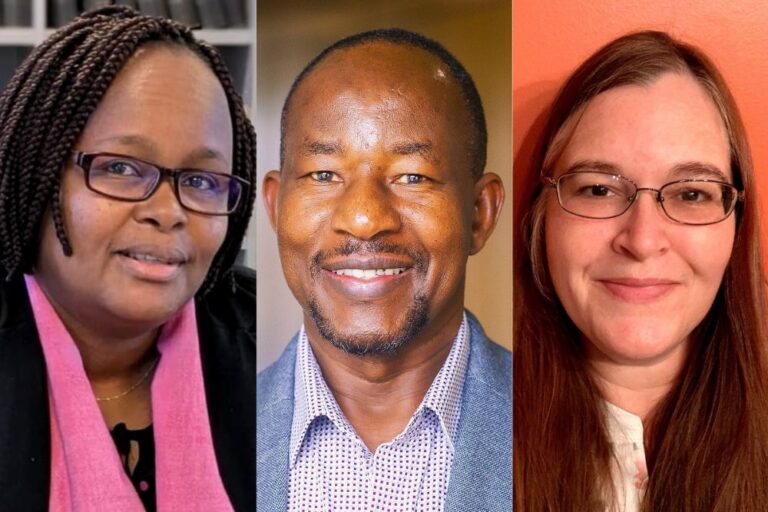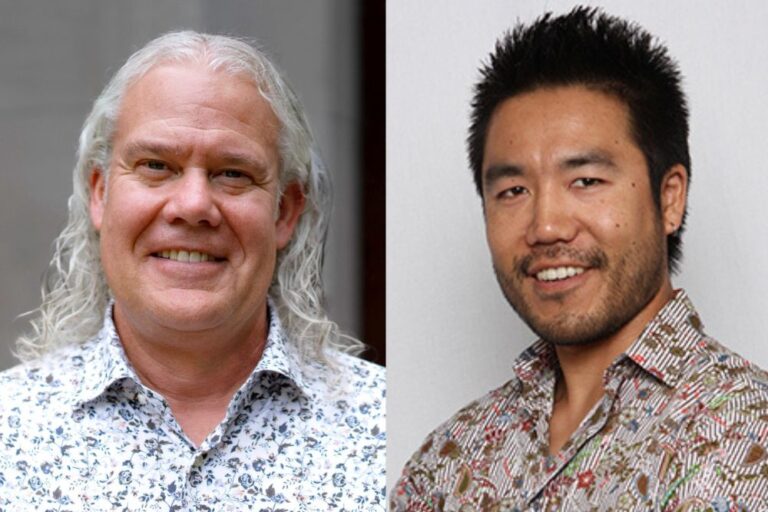As a Linguistics major with a minor in Indigenous Studies, Mikayla Thompson has a passion for Indigenous language revitalization and is a proud descendant of the Cherokee Nation of Oklahoma. Her journey highlights the enduring power of ancestral connections and the unwavering commitment to safeguard the languages that shape identity.
Born and raised in Michigan, Thompson’s early years were devoid of substantial exposure to her ancestral language, until a pivotal moment when she was a senior in high school and had worked on a class project focused on the Trail of Tears. The project stirred in her a passion for Indigenous language revitalization as she experienced a profound sense of connection to her ancestors who had walked the Trail of Tears.

“I learned the word for Trail of Tears in Cherokee. I heard the word whispered in my brain – it just appeared in my mind,” Thompson said. “I’ve talked to countless elders about it, and they said that it was my ancestors speaking to me. I still know the word today. It’s Nunahidunatlohilui. It’s a long word. The fact that I just knew it, that was a really powerful moment for me. Since then, I couldn’t stop learning about my language.”
Today, many Indigenous communities face the threat of their ancestral languages disappearing. Thompson identifies the primary hurdle as the stigma surrounding these languages, a challenge that originates not just externally but also from within the Indigenous communities themselves.
“The history of forced assimilation, where we were forced to give up our languages, instilled this fear and this stigma within us that ‘this is a lower language, it’s dying, it’s not worth saving. Everybody else speaks English,’” Thompson said. “But I find beauty in the diversity and the identity that comes with our language.”
“The history of forced assimilation, where we were forced to give up our languages, instilled this fear and this stigma within us that ‘this is a lower language, it’s dying, it’s not worth saving.’ But I find beauty in the diversity and the identity that comes with our language.”
Thompson views culture, language, and land as deeply interconnected facets of Indigenous identity that must be protected to ensure they are passed to future generations. To her, everything is interlinked; neglecting one aspect invariably impacts everything else.
“For Indigenous peoples, we really stress the importance of interconnectedness. There’s no aspect of a web that doesn’t need others,” she said. “If you take one aspect out of that web, everything falls apart. Knowing that, as humans, we depend on the land for survival. She gives us everything we need. All she asks is that we respect her in return. She gave us life, she gave us our culture, our language, our identities. Honoring that is at the core of what we do as Indigenous people.”

This connection profoundly influenced Thompson’s dedication to Indigenous language revitalization. And, even though she’s never visited her reservation in Oklahoma, she maintains a deep-rooted connection to her people, land, and community.
“That’s what really drives me to do language preservation and revitalization,” Thompson said. “This community, despite not knowing me personally, has always had my back. That support is what really drives me to do what I do; it’s my people completely.”
Thompson wrote about her ancestral roots in the poem, sacred roots, for which she was named one of the winners of the 2023 Nurture Your Roots creative writing contest for MSU’s Beal Botanical Garden.
“That’s what really drives me to do language preservation and revitalization. This community, despite not knowing me personally, has always had my back. That support is what really drives me to do what I do.”
She credits Suzanne Wagner, Associate Professor in the Department of Linguistics, Languages, and Cultures at Michigan State University, with playing a pivotal role in her educational journey. Thompson collaborated on her senior thesis, titled “Identity and Heritage Language Learning,” with Wagner, who also exposed Thompson to opportunities she might never have encountered otherwise, including a research seminar this past summer on language revitalization methods at the University of Oregon.
Thompson was one of only seven students from across the country who was accepted into this eight-week National Science Foundation Research Experience for Undergraduates, which was part of the University of Oregon’s Increasing American Indian/Alaska Native Perspectives in Field and Experimental Linguistics initiative. The program included instruction on topics in descriptive linguistics and experimental linguistics, hands-on research in two labs, and input from local Indigenous educators and researchers.

“As a descendent of the Cherokee Nation, I know quite intimately the degree to which language repression and subsequent language endangerment has influenced Indigenous communities, and what it means for the future,” Thompson said. “I hope to apply what I have learned at the University of Oregon to my own communities, so that I may more deeply familiarize myself with my ancestral language, Cherokee, and to eventually pass it down to others in my communities.”
Under the guidance of American Indian and Indigenous Studies Instructor John-Paul Chalykoff, Thompson took a year of Independent Study to learn the Cherokee language. She hopes to one day be fluent in it, so she may teach the language to Cherokee youth.
Through MSU’s American Indian and Indigenous Studies Program, Thompson also has forged connections with the Native community in Lansing.
“Not only does MSU talk about this kind of stuff, but they’re also actually putting their money where their mouth is. They’re supporting Indigenous communities, like the Ojibwe here on this land.”
“That has been amazing to be a part of. We’ve had countless events, supporting Indigenous ceremonies, communities, stuff like that,” Thompson said. “It’s just awesome to see that. Not only does MSU talk about this kind of stuff, but they’re also actually putting their money where their mouth is. They’re supporting Indigenous communities, like the Ojibwe here on this land.”
Thompson plans to graduate from Michigan State University in December 2023 and plans to apply to graduate programs in Linguistics, with the long-term goal of working with Indigenous communities to help preserve their ancestral language.
November is National Native American Heritage Month, a time to celebrate the rich and diverse cultures, traditions, and histories while acknowledging the important contributions of Indigenous people. For those who wish to support Indigenous language revitalization, Thompson’s advice is straightforward: direct your efforts towards uplifting Indigenous communities. Whether it’s through spreading positivity, online advocacy, or acknowledging and celebrating the strenuous efforts of Indigenous individuals striving to preserve their languages, every gesture contributes to this essential cause.


